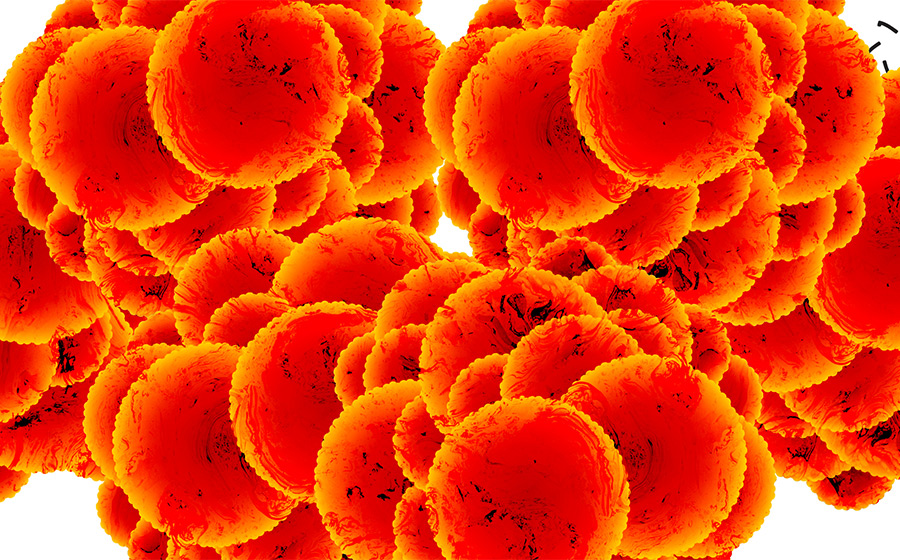Networking Effects in the Cultural Domain
Members of the ARTNET project research team (Nikola Bojić, Sanja Horvatinčić, Ljiljana Kolešnik, Sanja Sekelj and Artur Šilić) will participate in the international conference “Network Effect”, taking place in Filodrammatica, Rijeka, on 30 June 2018.
-
From a density of creative encounters in time and space throughout the 20th century, to more technologized, transcultural collaborations platforms of 21th century, networks had a seminal importance for the genesis and evolution of culture. At the same time, the variety of networking models spontaneously or intentionally rendered hierarchies, bubbles, and sometimes even segregation in different social environments.
“Network Effect” is a one-day discursive event that will take place in Filodrammatica (Korzo 28, Rijeka), on Saturday, 30 June 2018, aiming to tackle the political biases and social effects of networking, with a special focus on the cultural domain.
A discussion will be organized around two main subtopics – models (from 10:00 to 13:00) and interfaces (from 16:00 to 19:00). Admission is free.
The conference will feature presentations and talks by Annelie Berner (Copenhagen Institute of Interaction Design), Donato Ricci (médialab, Sciences Po, Paris), Ljiljana Kolešnik (Institute of Art History, Zagreb), Sanja Sekelj (Institute of Art History, Zagreb), Nikola Bojić (Institute of Art History, Zagreb), Edgar Buršić (Faculty of Interdisciplinary, Italian and Cultural Studies, Pula) and Davor Mišković (Drugo more, Rijeka).
The conference is organized in the framework of the international project State Machines that investigates the new relationships between states, citizens, and the stateless conditions made possible by emerging technologies. Focussing on how such technologies impact identity and citizenship, digital labour and finance, the project joins five experienced partners Aksioma (SI), Drugo more (HR), Furtherfield (UK), Institute of Network Cultures (NL) and NeMe (CY) together with a range of artists, curators, theorists and audiences.
-
Panels
Models, 10:00 – 13:00 h
Whether they emerged spontaneously from dynamics of a certain historical moment, or as a result of mathematically defined algorithms, networking models render communication channels and productive social patterns but also contain social biases and traces of oppressiveness. The first part of the discussion will thus focus on networking models analysed through different case studies, but also historic models such as Schelling’s model of segregation (1978) or Hägerstrand’s time-geographic model (1970). These two models are pointed out here because in different ways they both address the socio-generative nature of networking, posing a question of time-space relations in network analyses and visualisation.
Presentations
ART NET Project: Visualizing Networks and Collaborative Art Practices in 20th and 21st Century
Ljiljana Kolešnik
Observing a digital realm as an opportunity for a significant epistemological shift in humanities, the presentation will deal with the models of knowledge production emerged from the ART NET project and related collaborative visualization tools.
Local Platforms, Transnational Networks, and the Tactical Organizing of the Independent Cultural Scene in Zagreb
Sanja Sekelj
By bridging the gap between quantitative and qualitative network analysis, the presentation will examine the independent cultural scene in Zagreb during 1990’s and early 2000’s as a space of complex personal, social and spatio-temporal relations.
Networking through Persistence
Edgar Buršić & Davor Mišković
The Clubture Network is a network formed on the ground of previously existing informal networks of NGOs and people. Clubture has made a major impact on the persistence of those connections through the formalization of the relationships between NGOs and the objectification of their goals.
Interfaces, 16:00 – 19:00 h
The problems inscribed in networking models and related effects are often not only uncritically translated into different visualisations and interface structures, but further amplified with the seductive language of visual, interactive medium. The questions we want of open up within this subtopic are focused to a possibility of a “visualisation in the expanded field” which can encompass both, back-end models and the front-end content (data) of networks, and put into question the hidden politics of interface. Again, grounding the discussion in different cases, we are going to tackle possibilities of spatialisation of visualisations though technologies such as AR and VR, and finally rethink the notion of network effect as a process of critical engagement of new audiences/users/participants.
Presentations
Future Erasure: Diegetic Interfaces
Annelie Berner
“Future Erasure” is a futurescaping workshop created by CIID Research to immerse and engage museums in a difficult but pressing problem: to explore and design possible futures of heritage in a world where there is no universal canon to distinguish what is worth remembering and preserving from what is not.
Protocols for a Useful Uselessness
Donato Ricci
While new data-driven research methods are carrying the promise to “make the Social legible again”, their outcomes —their way to render the Social visible anew— often relies on a reductive mimetic association with networks and graphs. Despite the relentless integration of design competencies into these kinds of inquiries, the “network anesthesia”, as Anna Munster called it, stays unchallenged: as the protocol of research become more and more stable, less and less space for experimentation is left. Is there a possibility to reopen this space with experiments addressing the rhythms and the tensions of networks, rather than the network metrics and structures?
Spatializing Networks, Materializing Data: Curatorial Experiments in AR/VR Environments
Nikola Bojić
Situated between tangible exhibition spaces, intangible data environments and the existing AR / VR technologies, the presentation will tackle the problem of curatorial models of networking phenomena in art and culture.
-
The conference is organized by the non-profit organisation Drugo more and the Institute of Art History, Zagreb.
The program is supported by European Commission program Creative Europe, Kultura nova Foundation, Ministry of Culture of the Republic of Croatia, City of Rijeka – Department of Culture, Croatian Government Office for Cooperation with NGOs, Croatian Science Foundation.
This program is realized in the framework of State Machines, a joint project by Aksioma (SI), Drugo more (HR), Furtherfield (UK), Institute of Network Cultures (NL) and NeMe (CY). The program is realized in the framework of Refleks program.
-
Contact: Ljiljana Kolešnik
